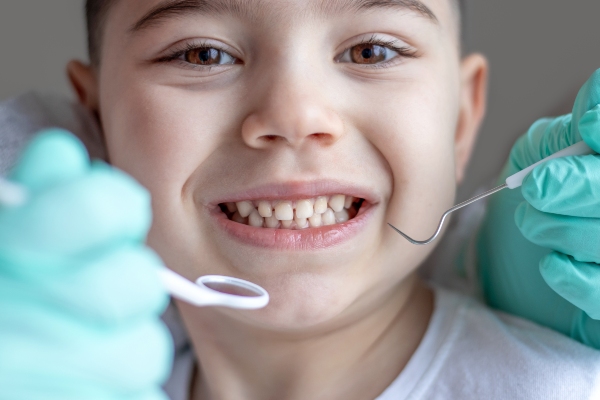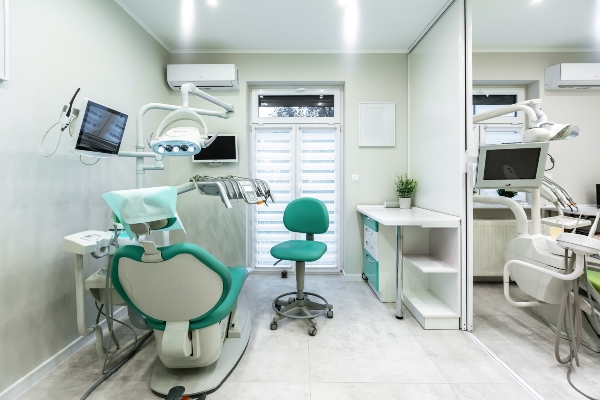 A pediatric root canal is a safe and effective procedure often necessary to save a severely decayed or infected tooth. However, following a thorough post-treatment plan is just as important as the procedure itself. The right post-procedure care ensures your child heals properly and maintains a bright and happy smile.
A pediatric root canal is a safe and effective procedure often necessary to save a severely decayed or infected tooth. However, following a thorough post-treatment plan is just as important as the procedure itself. The right post-procedure care ensures your child heals properly and maintains a bright and happy smile.
Common symptoms after a pediatric root canal
A pediatric root canal is where a pediatric dentist removes infected or damaged pulp and then cleans the inside of a child's tooth. This procedure may be necessary due to severe decay, damage, or infection. While the root canal is not a major procedure, the child will need a few days to recover while their mouth and body heal.
Some common symptoms that children may complain about after a pediatric root canal may include:
- Pain
- Swollen or inflamed tissue
- Increased sensitivity
- Feeling the filling on the crown of the tooth
In most cases, these symptoms should subside on their own within a few days. However, call the pediatric dentist immediately if the child begins to experience signs of infection, such as an abscess or a fever. While rare, this may indicate a failed root canal.
Post-treatment care
Right after the procedure, the child's mouth will be numb for a few hours. The parent needs to monitor them closely to ensure they do not accidentally bite their tongue, cheeks, or lips. Encourage the child to rest and avoid eating until the numbness has completely worn off to prevent injury or any choking hazards.
As previously mentioned, some discomfort and sensitivity are normal after a pediatric root canal. The pediatric dentist may recommend over-the-counter, child-friendly pain medications to help manage this discomfort and inflammation. Administer the pain medication according to the directions and use them as needed.
It may also be helpful to apply a cold compress on the outside of the child's cheek near the treated area to help reduce swelling and alleviate pain. Apply a small bag of ice or frozen vegetables for a few minutes on and off. Repeat it as needed. Be sure to wrap it in a cloth to avoid skin irritation.
Oral hygiene routine
A good oral hygiene routine is essential after a pediatric root canal and can prevent further infection. Continue to help brush and floss the child's teeth as normal twice a day. Be gentle around the treated tooth to avoid irritation. A soft-bristled toothbrush can help prevent any discomfort while brushing. Ensure the child uses fluoride toothpaste to strengthen teeth enamel and prevent further decay.
Diet and nutrition
After a pediatric root canal, it is best to stick to a soft diet for the first few days. Foods like yogurt, mashed potatoes, applesauce, and soups do not require much chewing and are easy to consume. Avoid giving the child hard, crunchy, or sticky foods that could damage the treated tooth or cause additional discomfort. Additionally, have the child clean and rinse their mouth after eating or drinking.
Make your child’s pediatric root canal recovery as easy as possible
Following the tips above can help your child recover as easily as possible from a pediatric root canal. Do you have questions or concerns about their post-treatment care? Call our office for more information.
Request an appointment or call Hudson Valley Pediatric Dentistry at 845-363-4177 for an appointment in our Middletown office.
Recent Posts
Your child may need a children’s root canal soon. As a parent, you must know why your child might need this procedure and what to expect. That way, you can prepare yourself and your child for the appointment with your pediatric dentist. Here are the details about the need for a children’s root canal and…
Knowing that your child will need a pediatric root canal can be overwhelming. A root canal treatment does not leave a positive impression because of its invasive nature. Understanding this procedure will enable you to prepare yourself and your child for the next visit. Here are the details on getting a pediatric root canal.The consultation…
A pediatric root canal is important for preventing pain and keeping your child's mouth healthy. While the idea of a pediatric root canal may not be pleasant for most parents, Your child will be in good hands with a pediatric dentist. Here are some things parents can do before and after a pediatric root canal…


